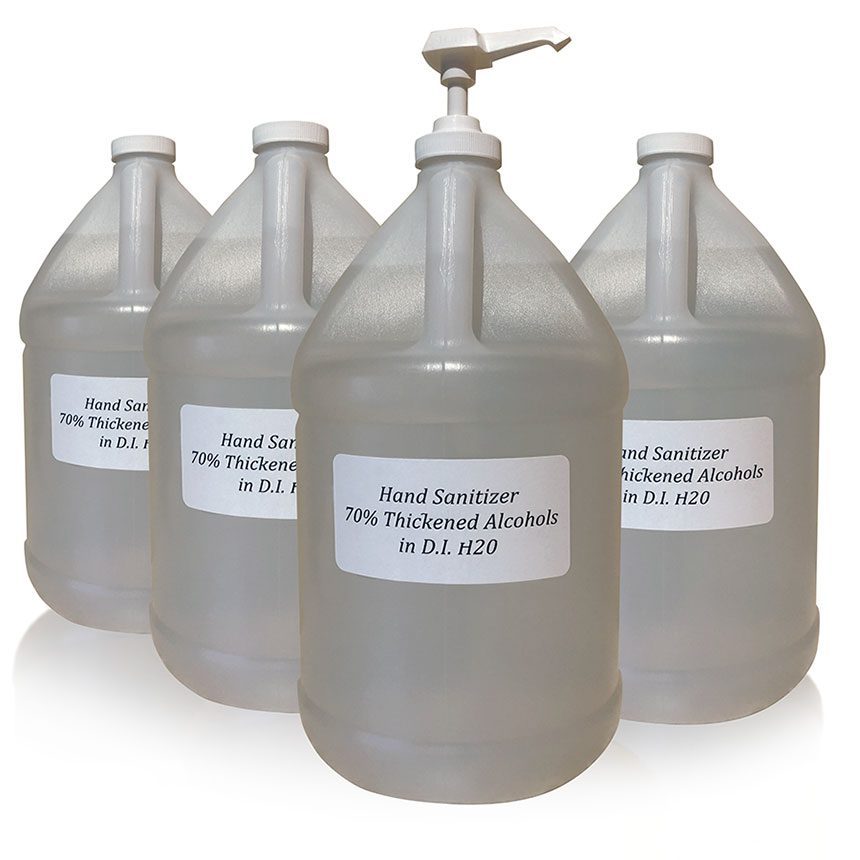
In the wake of the global COVID-19 pandemic, proper hand sanitizer disposal has emerged as a hazardous waste concern for many municipalities, facilities, businesses, and institutions everywhere. Ironically, what was once viewed as a simple yet effective means to control the spread of infection from contact sources has become a major hazardous waste management problem. The amount of hand sanitizer produced far exceeded its possible use before expiration. Now, the excess hand sanitizer needs to be disposed of properly. Highly flammable and, in some instances, toxic, what was once deemed indispensable is now a hazardous waste.
What Makes Hand Sanitizer Hazardous?
Hand sanitizer’s classification as a hazardous waste is due to its flammable properties derived from its alcohol content. Alcohol has long been used as an antiseptic. The majority of today’s hand sanitizers on the market contain a minimum of 60% and up to 95% isopropyl or ethyl alcohol that, mixed with water and glycol and glycerin gels, can not only sanitize your hands but can be exceptionally volatile if ignited.
Hand sanitizers with a 60% minimum alcohol content follow a CDC recommendation from the revised hand hygiene guidelines published in 2002. The reason is that high alcohol content would adequately sanitize the hands of healthcare personnel and the average user when soap and warm water are unavailable.
Because it is a hazardous waste, excess and expired hand sanitizer must be stored and disposed of following hazardous waste guidelines because it is a hazardous waste; due to the alcohol content, hand sanitizers are classified as a Class 3 Flammable Liquid. OSHA regulations, for example, state that hand sanitizers cannot be stored in offices or public buildings. Large amounts of hand sanitizer totaling 25 gallons or more, whether in 5-gallon buckets or 5 oz. containers must be stored in flammable liquid storage cabinets.
Hazardous Waste Concerns of Hand Sanitizer
Disposal is another issue. For households, though it would be best to dispose of expired hand sanitizer at the town’s household hazardous waste center, if need be, small amounts of hand sanitizer can be discarded in the regular trash. Do not pour hand sanitizer down the sink or flush down the toilet. Because the isopropyl or ethyl alcohol in the hand sanitizer is an environmental hazard and flammable, it can damage the infrastructure at the local wastewater treatment plant or, if applicable, seep into your groundwater.
Even more problematic than residential hand sanitizer disposal is the waste disposal of large amounts of hand sanitizer. Industrial and commercial quantities of unused or expired hand sanitizer must be disposed of as hazardous waste. Proper handling and disposal is required by law. The vapor alone generated by gallons of alcohol-based sanitizer is highly explosive and could be catastrophic if emptied into a local sewer system.
Another hazardous waste concern with hand sanitizers is those that contain methanol, 1-propanol, or other contaminants. The FDA has issued public warnings to consumers and health care providers over manufacturers that have falsely labeled some hand sanitizers as ethanol (or ethyl alcohol) that have actually tested positive for containing methanol (methyl alcohol) instead. Methanol, known as wood alcohol, makes antifreeze, fuels, and solvents. It is a volatile, highly flammable, toxic substance that can be easily absorbed through the skin or, if accidentally ingested, can be life-threatening. The multi-purpose industrial solvent 1-propanol is also highly flammable. The fumes from 1-propanol hand sanitizer can cause respiratory irritation, affect the central nervous system, and be harmful if accidentally swallowed or incidental eye contact occurs.
Contact the Hazardous Waste Experts at MLI Environmental
When the demand for hand sanitizer exploded during the pandemic, it was unimaginable that it could lead to a hazardous waste problem or possibly require hazardous waste disposal and management. Today, many manufacturers, healthcare facilities, schools, universities, office complexes, businesses, laboratories, and so forth likely store excess or expired quantities of hand sanitizer that must be properly disposed of. MLI Environmental offers a comprehensive and informative waste audit and analysis if your company or institution is confronting such an excess hand sanitizer dilemma. We also offer waste disposal solutions to resolve excess hand sanitizer safely. Contact MLI Environmental for more information.
